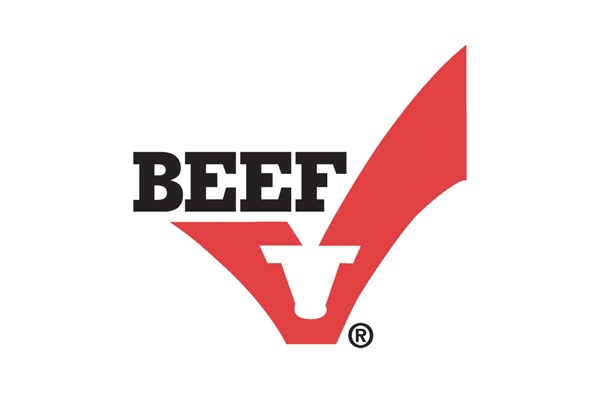Kansas Livestock Assn. defends its actions and separation of lobbying activities from checkoff-related efforts.

The Kansas Cattlemen’s Assn. (KCA) and the Organization for Competitive Markets (OCM) are calling for the U.S. Department of Agriculture and the Cattlemen’s Beef Board to disqualify the Kansas Beef Council from collecting any further checkoff funds until a complete separation is established from the Kansas Livestock Assn. (KLA) and all associated lobbying activities.
In a briefing paper released Oct. 9 by OCM and KCA, the groups detail what they believe is KLA illegally obtaining funds through a close affiliation with the Kansas Beef Council, which is charged with collecting $1 per head from every cattle transaction as part of the federally mandated Beef Checkoff Program.
KLA vice president of legal affairs Aaron Popelka said the claims outlined in the briefing paper and at a press conference are “completely false and fabricated.”
OCM and KCA claim that the Kansas Beef Council is not an independent entity, despite legal requirements. On its website, KCA states that KLA’s Kansas Beef Council does have a set of bylaws bearing the title “Operational By-Laws, Kansas Beef Council an Organization of the Kansas Livestock Association (KLA).” While the bylaws state that the Kansas Beef Council shall operate as “a separate and segregated entity,” KCA’s assessment of Section 5 of the bylaws is that KLA “has complete and total control over budgets, policies and major programs" the Kansas Beef Council develops, the brief paper noted.
The groups said the Kansas Beef Council should be disqualified as the designated Qualified State Beef Council in Kansas, and the state legislature should enact legislation setting up a new collection authority that is fully transparent and equally representative of all Kansas cattle producers.
Popelka explained that Kansas was the first state to voluntarily collect assessments on cattle transactions for research and promotion. When checkoff legislation passed in 1985 establishing the beef checkoff, the Kansas Beef Council was grandfathered in. Regarding actions to keep KLA separate from the Kansas Beef Council, Popelka said there are accounting firewalls to ensure that all checkoff funds are used only for beef promotion and research, and budgets must be submitted to the Cattlemen’s Beef Board and the U.S. Department of agriculture for approval. In addition, independent, third-party audits are done each year.
“All of those audits came back clean,” Popelka said. “All funds are accounted for and spent on checkoff purposes and not for lobbying.”
The funds generated from the beef checkoff bring in roughly $3.5 million to the state for its research and promotional activities.
OCM and KCA claim that funds are "being used to prop up KLA operations by contributing to office rental payments and employee salaries.” Popelka said he doesn’t understand how spending money on staff members and building rent is somehow wrong. “To carry out promotional activities in Kansas, we need somewhere to work,” he pointed out.
KCA president Greg Davis said the organization supports the Beef Checkoff Program but objects to the way it is administered, the way the checkoff is being collected and the lack of transparency and accountability to the cattle producers who are required to pay the federal tax.
“For years, Kansas Cattlemen’s Assn. has voiced these concerns, but no one has taken one step to stop this injustice. We can only hope, based on the evidence in this briefing paper, that others in our government will hear our concerns and answer the call to end the taxpayer abuse. It is our fear that if this mess is not cleaned up soon, the majority of cattle producers will be calling for an end to the Beef Checkoff Program,” Davis said.
Popelka said KCA has made complaints in the past but has made no specific requests to find a solution. He said KLA is very disappointed that KCA joined forces with an organization like OCM, a known ally and recipient of money from The Humane Society of the United States (HSUS).
“To team up with someone in bed with HSUS is really disappointing,” Popelka said, adding that HSUS has made it clear that its goal is to end animal agriculture as we know it. “At the end of the day, it’s only going to harm ranchers’ livelihood.”
Popelka pointed out that any cattle producers who don’t like the state’s messaging or actions, under current USDA regulations, can request that the entire dollar collected from the sale of their cattle be afforded to the Cattlemen’s Beef Board. He said a number of KCA members, including some involved in the press conference Wednesday, are already doing that.
Due to an ongoing lawsuit, producers in Montana must mandate that their 50% of checkoff funds be sent to Montana’s state beef council. In a case stemming from concerns over having to promote all beef -- including from Canada or other foreign countries -- instead of just U.S.-raised beef, the money now goes to national promotion and research only.
“If you’re for local control and local impact, this lawsuit attempts to destroy that,” Popelka said of the similar attempts to strip state beef checkoffs of their control and handling of funds.
About the Author(s)
You May Also Like


.png?width=300&auto=webp&quality=80&disable=upscale)


